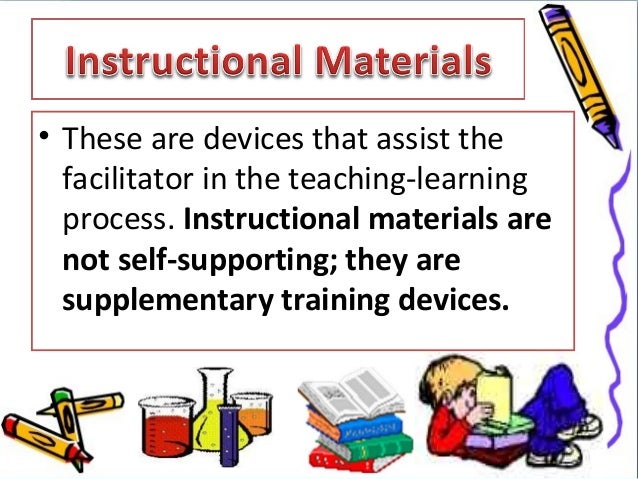USING AND EVALUATING INSTRUCTIONAL MATERIALS
-Using and Evaluating Instructional Materials “You should have a good idea of your destination, both in the over-all purposes of education and in the everyday work of your teaching. If you do not know where you are going, you cannot properly choose a way to get there.” Unknown One of the instructional materials used to attain instructional objectives is field trip. It is not enough to bring the class out for a field trip and make them observe anything or everything or use other instructional materials for no preparation and clear reason at all. For an effective use of instructional materials such as field trip, there are guidelines that ought to be observed, first of all, in their selection and second, in their use. The Proper Use of Materials It is one thing to select a good material, it is another thing to use it well. To ensure effective use of instructional material, Hayden Smith and Thomas Nagel, (1972) book authors on Instructional Media, advise us to abide by the acronym PPPF. Prepare yourself. You know your lesson objective and what you expect from the class after the session and why you have selected such particular instructional materials. Prepare your students. Set reasonably high class expectations and learning goals. It is sound practice to give them guide questions for them to be able to answer during the discussion. Motivate them and keep them interested and engaged. Present the material. Using media and materials, especially if they are mechanical nature, often requires rehearsal and a carefully planned performance. Follow up. It is needed to follow up to find out if objective was attained or not. To ensure that instructional materials serve their purpose in instruction, we need to observe some guidelines in their selection and use. The materials that we select must:
• Give a true picture of the ideas they
present
•Contribute to the attainment of the
learning objective
• Be aligned to curriculum standards and
competencies
• Be appropriate to the age,
intelligence and experience the learners
• Be in good and satisfactory condition
• Be culture-sensitive and
gender-sensitive
• Provide for a teacher’s guide
• Help develop the critical and
creative thinking powers of students
• Promote collaborative learning
• Be worth the time, expense and effort
involved For optimum use of the instructional material, it is necessary that
the teacher prepares: • Herself • Her student
• The instructional material and does
follow up.
• Promote independent study Any instructional
material can be the best provided it helps the teacher accomplish his/her
intended learning objectives. No instructional material, no matter how
superior, can take the place of an effective teacher. Instructional materials
may be perceived to be labor-saving devices for the teacher. On the contrary,
the teacher even works harder when she makes good use of instructional
materials.



No comments:
Post a Comment